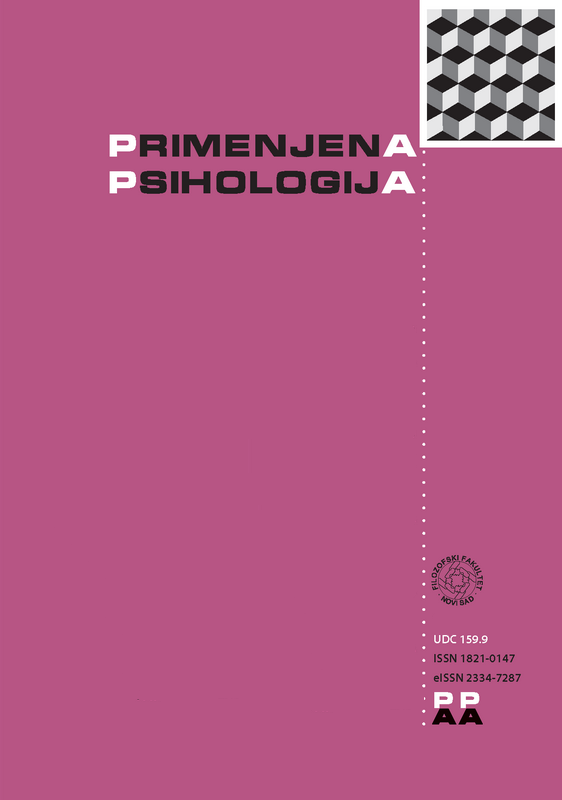Psychometric evaluation of the Affective Styles Questinnaire on a sample of Serbian-speaking individuals
DOI:
https://doi.org/10.19090/pp.2013.1.45-65Keywords:
Affective Styles Questionnaire, ASQ, Serbian translation, Emotional regulationAbstract
This paper presents the results of two validation studies of a Serbian translation of the Affective Styles Questionnaire (ASQ; Hofmann & Kashdan, 2010). The aim of the first study was to explore the internal consistency and predictive validity of the instrument. The sample consisted of 1633 students of the University of Novi Sad. The results confirmed the original factor structure i.e., the dimensions of Concealing (emotional regulation strategies aimed to conceal and suppress affect), Adjusting (strategies aimed to successfully adapt to the situation), and Tolerating (strategies of tolerance and acceptance of emotions). The Concealing and Adjusting subscales manifested highly acceptable coefficients of internal consistency, while the coefficient for Tolerance did not meet the criterion for acceptability. The highly acceptable predictive validity of the instrument was confirmed by correlations with depression, anxiety and stress scores of the DASS-21 questionnaire. The second study explored the correlations of the instrument's subscales with the concurrent measures of emotional regulation in order to test the instrument's concurrent validity. The sample consisted of 150 participants, including healthy people, people with psychosomatic complaints, and those suffering from hypertension and/or gastritis due to an organic disorder. Correlations with the Emotional Regulation Questionnaire (ERQ) scores, as well as with the Cognitive Emotional Regulation Questionnaire (CERQ) and the Toronto Alexithymia Scale (TAS) scores were consistent with the theoretical expectations, suggesting high validity of the instrument. Overall, results confirmed the applicability of the instrument, also suggesting a need for future research focused on exploration of the subtle cultural specificities in emotional regulation of the local population.Downloads
Published
19.03.2013
How to Cite
Žuljević, D., Radović, D., & Gavrilov Jerković, V. (2013). Psychometric evaluation of the Affective Styles Questinnaire on a sample of Serbian-speaking individuals. Primenjena Psihologija, 6(1), 45–65. https://doi.org/10.19090/pp.2013.1.45-65
Issue
Section
Regular issues







